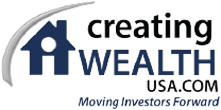Tax time is upon us again and the rules, they are a’changin! Do you know how to lower your real estate investing tax liabilities and maximize your current retirement plan? What is the best way account for capital improvements to your investment property? Is there a tax benefit to paying off a mortgage early? What would the financial and tax implications be if I sell and rent properties in the same entity? Am I better off selling and closing in December or January? Do you need a Real Estate Accountant?
If you are new to private enterprise, entrepreneurship or real estate investing, I strongly encourage you, if you haven’t done so already, to add a competent Certified Public Accountant (CPA) to your dream team. Some investors I’ve spoken with think a professional accountant is a costly luxury. I couldn’t disagree more. A well informed CPA is worth their fee for both consultation and tax preparation. They can save you many times their fee in avoiding unnecessary taxes. They can make sure you receive the maximum benefit provided by the IRS code. More importantly, they can provide guidance on how to manage your business in the most tax efficient manner. This alone can save you thousands of dollars in taxes every year, not to mention, avoiding IRS fees and penalties in the future.
When considering who you will select for your tax advisor you need to think about it just like you would when considering a doctor. I don’t know about you, but I wouldn’t go to a podiatrist for brain surgery, even if he gave me a discount any more than I’d want my neighbor’s cousin who sets up shop for 2 to 3 months a year to make a few hundred dollars preparing returns for his friends. I want a CPA who is also a real estate investor, a landlord, an entrepreneur and a person of high ethical standards and character. I want someone who faces the same challenges and opportunities as me. If they need the same benefits and deductions as I do, then they will be focused on the areas of the tax code that will serve my needs and grant me the protections I want.
When it comes to choosing your CPA, here are some interview questions you might consider asking. I’m always looking for advice on entity structuring, tax planning and retirement planning. These are my Top Twenty CPA Questions:
The CPA Top Twenty
- I’m a new investor, if you were my CPA, in what particular areas can you add value?
- Why are entities important and when is the best time to set up an entity?
- What is the best way to maximize deductions if I am still working a J.O.B.?
- I take a lot of seminars and buy CDs, are these deductible?
- What goes into deciding whether or not I should elect a C Corporation or S Corporation
- Can an LLC also be a C Corporation?
- How can a CPA help me to deal more effectively with lenders?
- How often should I meet with my CPA to discuss tax planning
- How should I prepare for this meeting?
- What’s the best way to keep track of my business for things like mileage, meals, and other expenses?
- Why shouldn’t I do my own taxes?
- Why shouldn’t I just go to H & R block?
- What is the biggest problem you have dealing with your investor clients?
- What is the biggest mistake you’ve seen an investor make and how could they have prevented it?
- What happens in an audit?
- What does a CPA do when his client is audited?
- Does an accountant get involved in their clients keeping of corporate records, minutes and such?
- What are the best things we can do to minimize being audited?
- What is your tax deduction philosophy, aggressive, conservative, or somewhere in between?
- Is there anything else I should be aware of to help my business be more tax efficient?
Feel free to add anything else you feel is important to the interview. You might ask for references or the number of real estate investors they have for clients. Year-end doesn’t have to be a problem for you or your CPA. With proper planning and ongoing communication you can have a very productive and profitable relationship.
One final note – The best time to schedule a CPA interview is usually mid-year because they should be through with the majority of filings for their current clients.
I hope this can get you started. Look out for future posts on Building Your Real Estate Investing Team.
